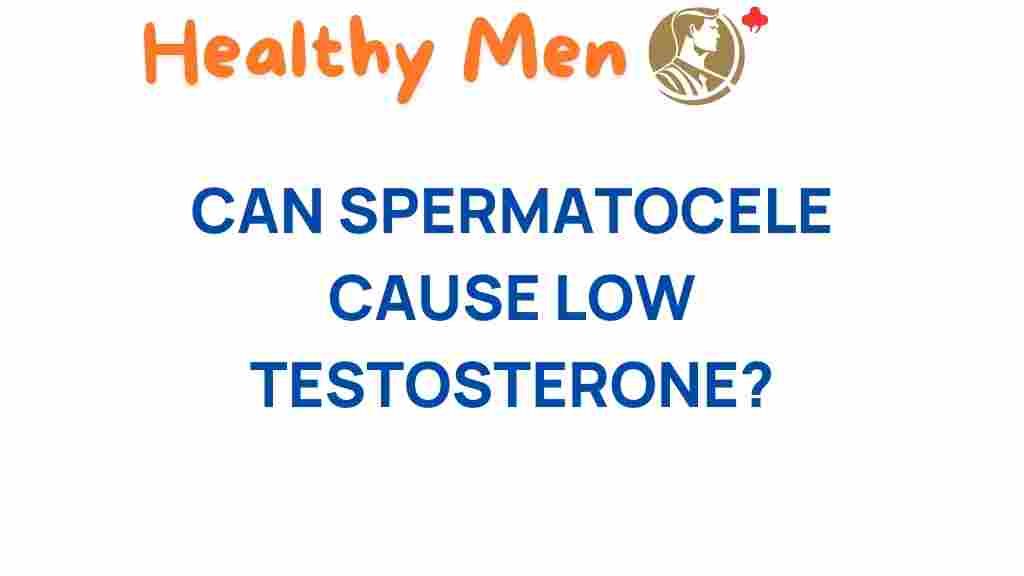Can a Spermatocele Impact Your Testosterone Levels?
Spermatocele, a common condition among men, refers to the formation of a cyst in the epididymis, the small tube located behind the testicle that stores and carries sperm. While generally benign, many men wonder whether a spermatocele can impact testosterone levels. Understanding the relationship between spermatocele, testosterone, and male health is crucial for those concerned about hormone balance, fertility, and overall well-being.
Understanding Spermatocele
A spermatocele is typically filled with a fluid that contains sperm. These cysts can vary in size and are often painless, making them difficult to detect without a medical examination. However, in some cases, they can cause discomfort or be a source of anxiety.
Symptoms of Spermatocele
Most men with a spermatocele experience minimal symptoms. However, the following signs may indicate the presence of a spermatocele:
- A small, painless lump in the scrotum.
- Swelling in the testicular region.
- Feeling of heaviness in the scrotum.
- Occasional discomfort or pain in the affected area.
Diagnosis of Spermatocele
If you suspect you have a spermatocele, it is important to consult a healthcare professional for an accurate diagnosis. The diagnosis typically involves:
- A physical examination of the scrotum.
- Ultrasound imaging to confirm the presence of a cyst.
- Assessment of any associated symptoms or concerns.
The Link Between Spermatocele and Testosterone Levels
One of the primary concerns regarding spermatocele is its potential impact on testosterone levels and male health. Testosterone is a vital hormone responsible for various functions in the male body, including:
- Regulating libido and sexual function.
- Maintaining muscle mass and strength.
- Supporting bone density.
- Contributing to mood and energy levels.
Can Spermatocele Affect Testosterone Production?
Research on the direct impact of spermatocele on testosterone levels is limited. However, here are some key points to consider:
- Location of the Cyst: Since spermatocele forms in the epididymis and not directly in the testicles, it typically does not interfere with testosterone production.
- Hormone Imbalance: While a spermatocele itself may not cause a hormone imbalance, anxiety or stress related to the condition can potentially affect overall hormonal health.
- Indirect Effects: If a spermatocele leads to discomfort or pain, it could potentially affect sexual health and therefore indirectly impact testosterone levels.
Fertility Concerns Related to Spermatocele
Another critical aspect of spermatocele is its potential effect on fertility. Many men worry about whether the presence of cysts can affect their ability to conceive.
Impact on Fertility
Fortunately, most men with a spermatocele do not experience fertility issues. However, here’s what you should know:
- Sperm Quality: In most cases, a spermatocele does not affect sperm quality or quantity.
- Associated Conditions: If a spermatocele is accompanied by other testicular issues, such as varicocele or hormonal imbalances, these could impact fertility.
- Consultation with a Specialist: If you are facing fertility issues and have a spermatocele, it’s essential to speak with a fertility specialist for personalized advice.
Treatment Options for Spermatocele
In many cases, treatment for spermatocele is not necessary unless it causes significant discomfort or anxiety. Here are common treatment options:
Observation and Monitoring
If the spermatocele is small and asymptomatic, your doctor may recommend a wait-and-see approach. Regular monitoring can help ensure that it does not grow or lead to complications.
Medications
In some cases, anti-inflammatory medications may be prescribed to alleviate discomfort associated with a spermatocele.
Surgical Intervention
If the cyst becomes bothersome or painful, surgical removal might be recommended. The procedure generally involves:
- Outpatient surgery.
- Minimal recovery time.
- Low risk of complications.
Managing Hormone Imbalance and Testosterone Levels
For those concerned about hormone balance, there are several strategies to help maintain healthy testosterone levels:
- Regular Exercise: Engaging in physical activity can boost testosterone levels and improve overall health.
- Healthy Diet: Consuming a balanced diet rich in nutrients can support hormone production.
- Stress Management: Techniques such as meditation, yoga, or deep-breathing exercises can help reduce stress, which may positively impact hormone levels.
- Regular Check-ups: Regular medical check-ups can help monitor hormone levels and overall health.
Troubleshooting Common Concerns
If you have been diagnosed with a spermatocele and have concerns about testosterone levels, fertility, or symptoms, consider the following troubleshooting tips:
- Stay Informed: Understand your condition and ask your healthcare provider any questions you may have.
- Monitor Symptoms: Keep a record of any changes in symptoms or overall health.
- Seek Support: Consider joining a support group for men with similar health concerns.
Conclusion
In summary, while a spermatocele itself is unlikely to directly impact testosterone levels, it is essential for men to stay informed about their reproductive health. Understanding the symptoms, diagnosis, and treatment options for spermatocele can empower men to manage their health effectively. If you have concerns about your testosterone levels, hormone balance, or fertility, it’s crucial to consult with a healthcare professional for personalized guidance.
For further reading on male health and hormone balance, consider checking out this resource. Additionally, for more information on spermatocele and related conditions, visit this link.
This article is in the category Conditions and created by healthymen Team
